Empowering Communities: Join Twin Cities Habitat for Humanity's Women Build Program
Each year, volunteers and supporters rally together as part of Twin Cities Habitat for Humanity’s Women Build. The Women Build program creates an...
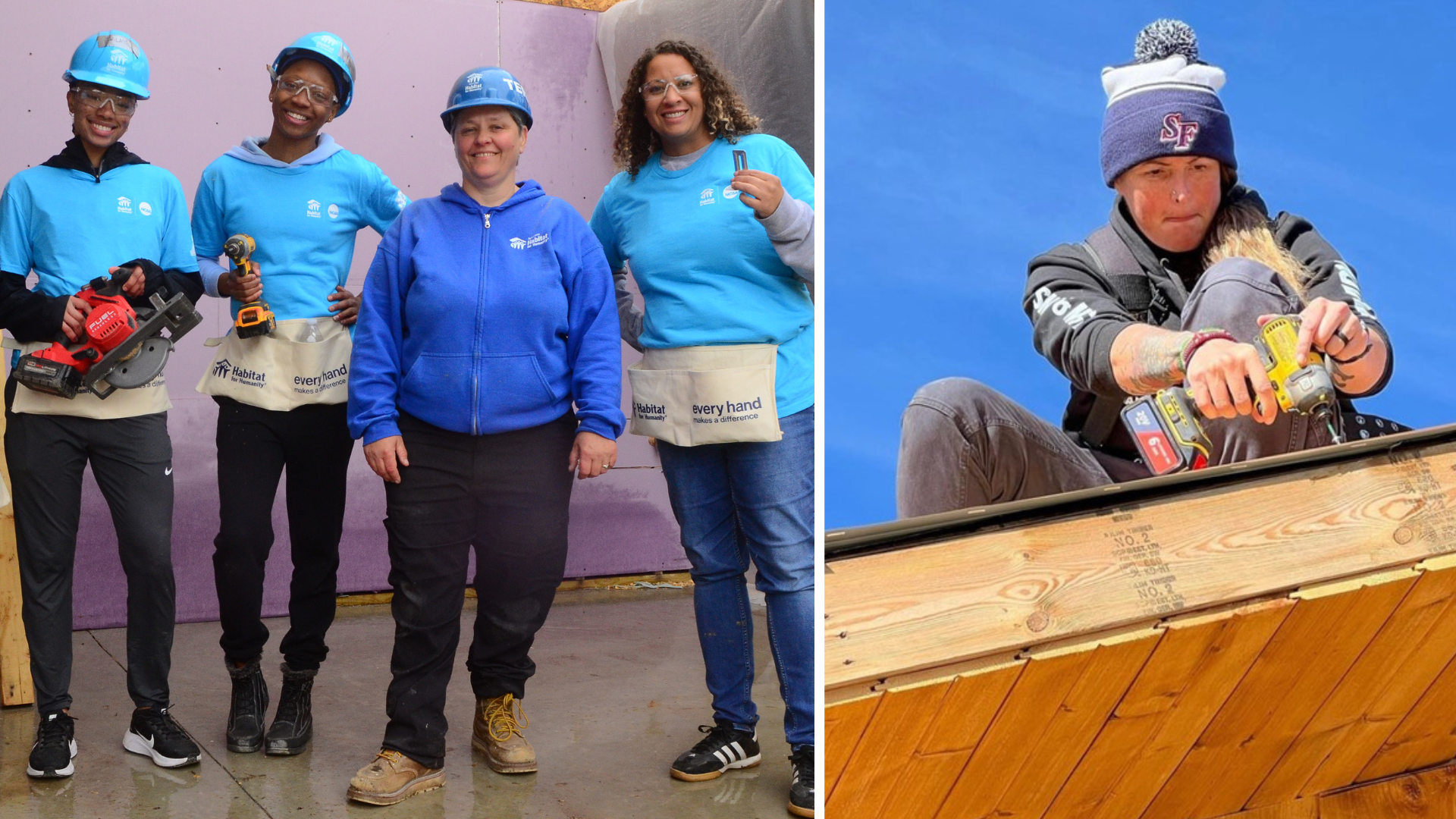
Women's History Month may have been in March, but women make a difference all year long at Twin Cities Habitat for Humanity. By sharing their stories, two staff members give a glimpse into what it's like to be a woman in construction, an often male-dominated field. Terra Lumley, Construction Field Manager, started her Habitat journey in 1999, previously serving as a volunteer, AmeriCorps member, and Site Supervisor. Rose Tuott has been a Site Supervisor since 2013 and graduated from UW Madison with a degree in civil engineering with an emphasis in construction management.
Read on to learn about—and from—their experiences!
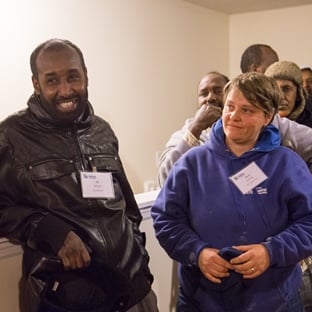
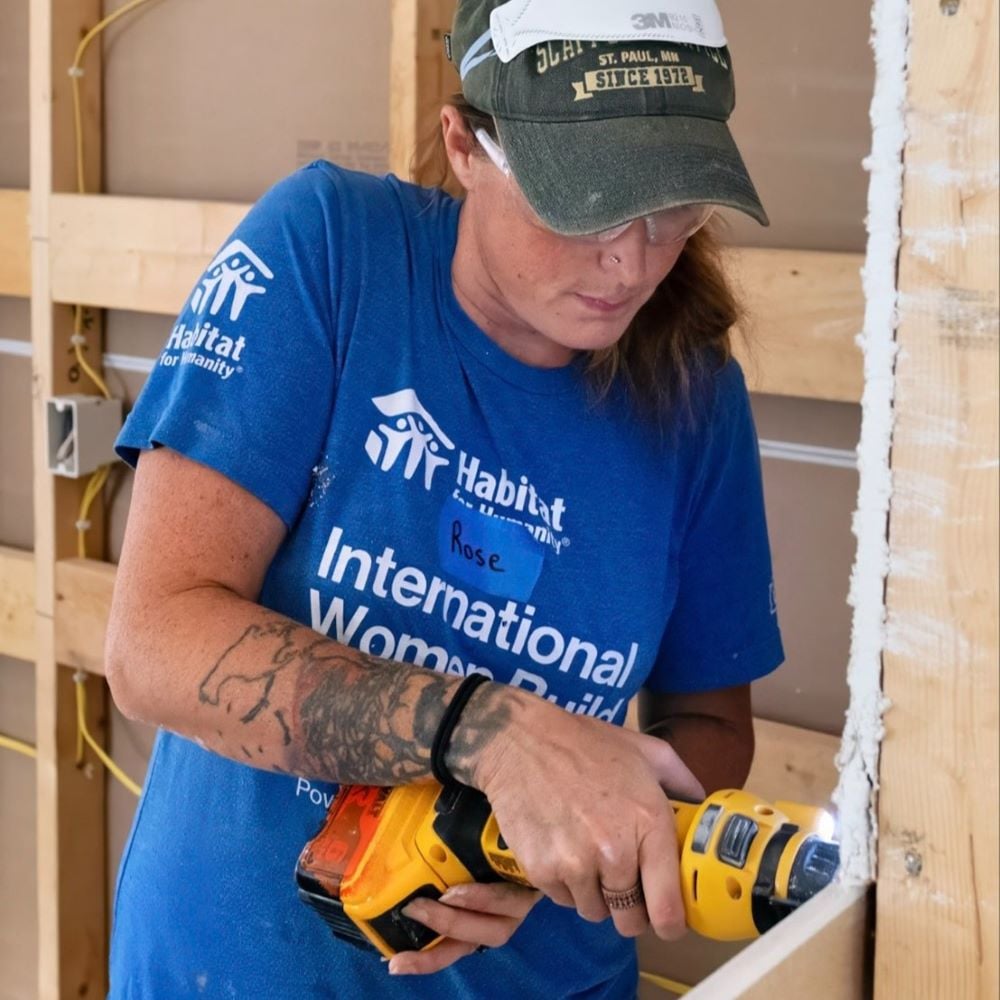
Terra Lumley: For my first job in the trades, I worked in a cabinet shop. I loved the work, but the culture was taxing. I had to ask my manager to take down inappropriate calendars. That made me unpopular. Shortly after, there were layoffs, and I was the only woman left. Some guys weren't too happy that I was still there and other men weren't. I became a physical target, where it became sport to shoot at me with nail guns from across the shop.
Once I started at Habitat, challenges were easier to navigate. Some guys didn't expect a female site supervisor, and we had to navigate a relationship to get the project done. It's gotten easier the past 25 years. Times change. People know me and know that Twin Cities Habitat has plenty of competent women running our sites.
Rose Tuott: As an engineering student, I was a minority as a female. When I was an intern and the only woman, I was made fun of for my "toy hammer." And let's just say that conversation at previous job sites was less than appropriate. I was so uncomfortable that I ate lunch in my car. As a welding inspector, I was treated politely but not quite as a respected peer.
Terra: I helped complete a historical preservation project honoring Dr. Martha Ripley. Dr. Ripley was a female physician in the 1880s who provided maternity services for poor, unwed, and widowed women and helped decrease infant mortality. Ripley Gardens was a historical preservation project, and Twin Cities Habitat built eight housing units there. I was the project lead, and I'm still proud that I was part of it.
Rose: I was the first female engineer at a structural steel consulting firm, where I also became one of two female Certified Associate Welding Inspectors. At Twin Cities Habitat, I've honed my creativity to help lead and teach volunteers, finding good fits for individuals and teams.
Terra: I can lead or follow. That may not seem like a big deal, but it's an asset in construction. You need to know your strengths and also know when others know more than you. I may know a lot, but others do, too.
Rose: My body just isn't built to lift 50- to 100-pound sheets of drywall all day. But my creativity, determination, and stubbornness help me do it anyway. I get creative to get the darn thing done, but I can do it.
Terra: I've been in the industry for more than 30 years. Times have changed. There are more women in construction. Women were 2% of tradespeople 25 years ago. Now women are 4% of tradespeople [!]. Lucky for us here at Twin Cities Habitat, 40% of site supervisors and 75% of project managers are women.
Rose: More women are becoming engineers and getting into the construction industry. The shock factor in the male-dominated industry is wearing off, and women are being recognized for their credentials and knowledge. I've been one of the only women in the majority of my career so far, and I can tell you that respect has grown enough to make it easier for the next group to come on in.
Terra: Maybe in the next 25 years, the [entire] industry will get closer to the 40% women [in construction] that Twin Cities Habitat has.
Rose: Plenty of women have proved that we can do it, even if we do it differently. More young girls and women are seeing people who look and think like them in the industry. Hopefully, this will empower more females to go for it. I think more women are realizing they enjoy working with their hands (and power tools) to build something bigger than they are. They're seeing how that can be done.
Terra: Tradeswomen are more likely than men to care about the condition of portable sanitation units (haha)!
Rose: Men and women each have strengths and weaknesses; construction is no exception. We find a different way to do the same job—we're not just tomboys saying we can do anything a man can do. We're talented, hardworking, beautiful, and strong. We're assets to your teams, and you need us.
Terra: As a site supervisor, the primary skills required to be successful are very different from the industry. Organization, teaching ability, and relationship building are key. Construction knowledge and competency are also important. Twin Cities Habitat site supervisors have all of these skills, making for a very fulfilling job.
Rose: About half of Twin Cities Habitat site supervisors are women. We're given the same responsibilities and leadership roles as our male peers. The future for women in construction at Twin Cities Habitat is looking very bright!
Looking to get involved with Twin Cities Habitat? Women Build is an empowering community where you can develop new skills and cultivate your strengths. Discover many ways to get involved—even without picking up a hammer!
Your gift unlocks bright futures! Donate now to create, preserve, and promote affordable homeownership in the Twin Cities.
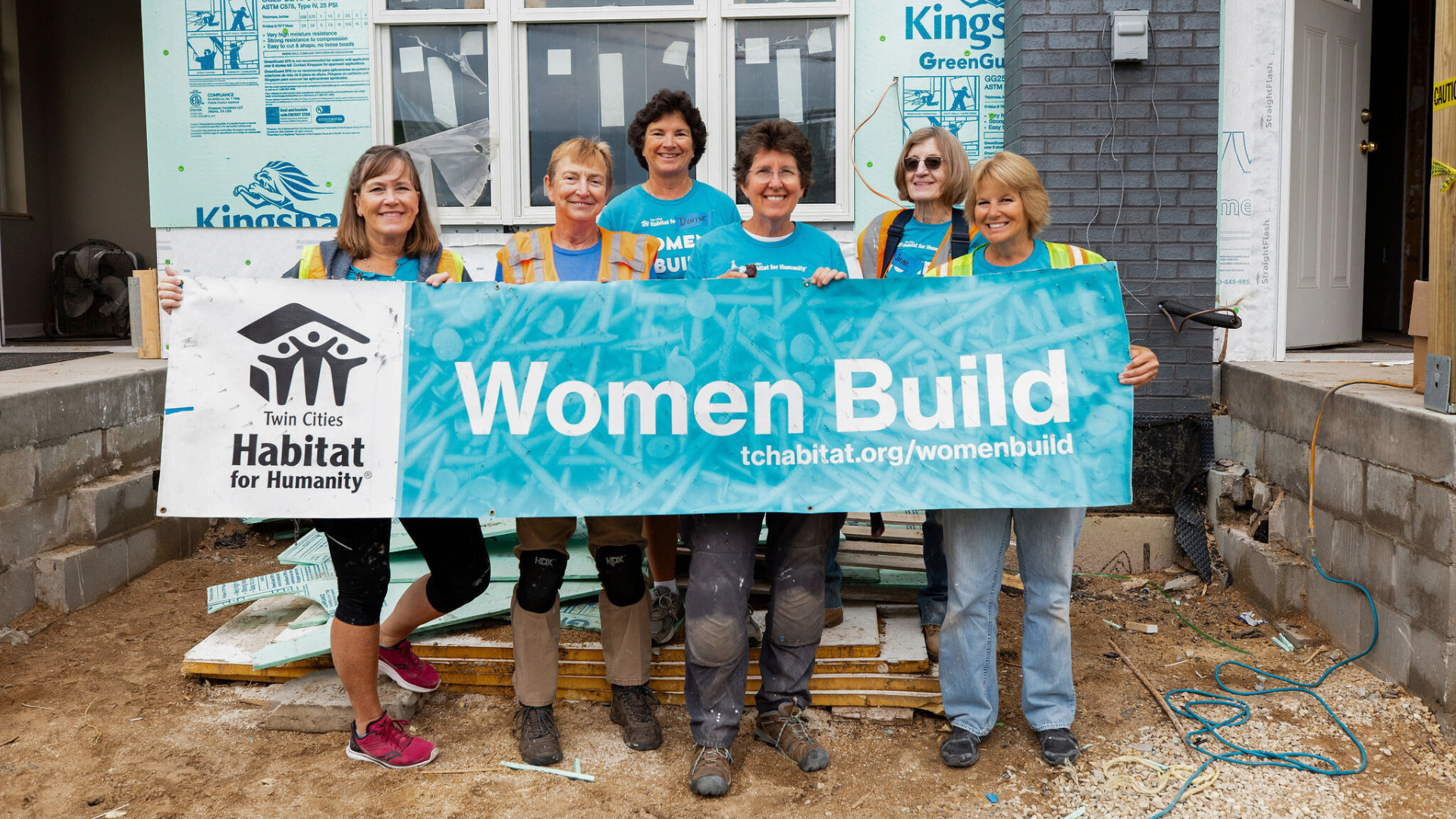
Each year, volunteers and supporters rally together as part of Twin Cities Habitat for Humanity’s Women Build. The Women Build program creates an...
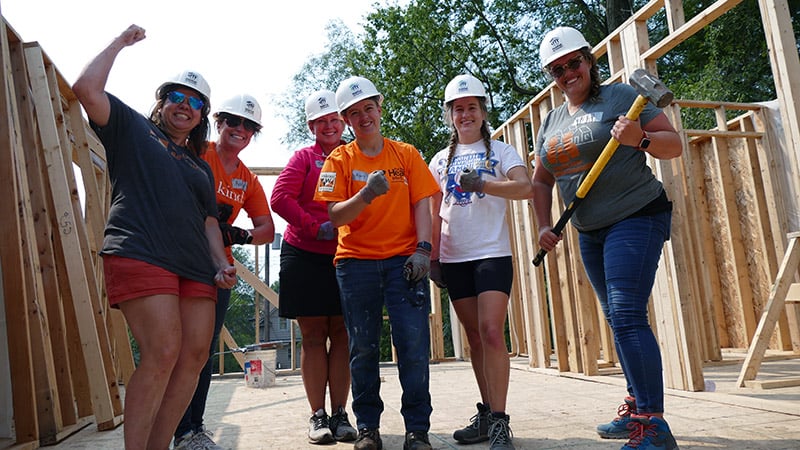
Each year, volunteers and supporters rally together as part of Twin Cities Habitat for Humanity’s Women Build. The Women Build program creates an...
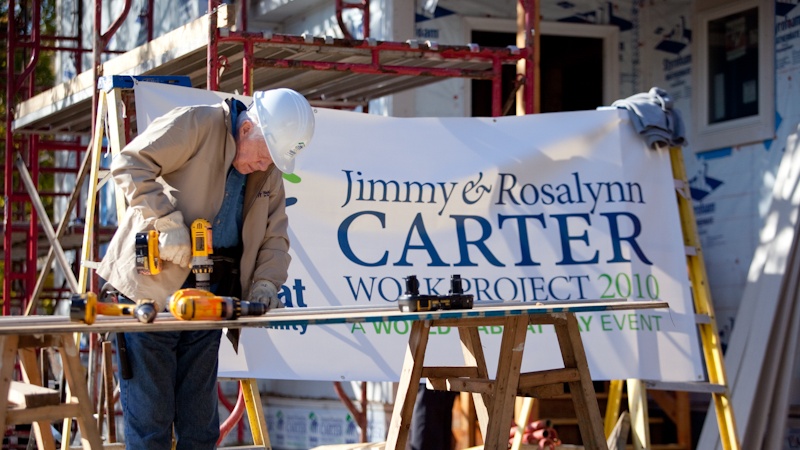
Excitement for the 2024 Jimmy & Rosalynn Carter Work Project is ramping up among staff, sponsors, and volunteers. For many of us, Carter Work Project...